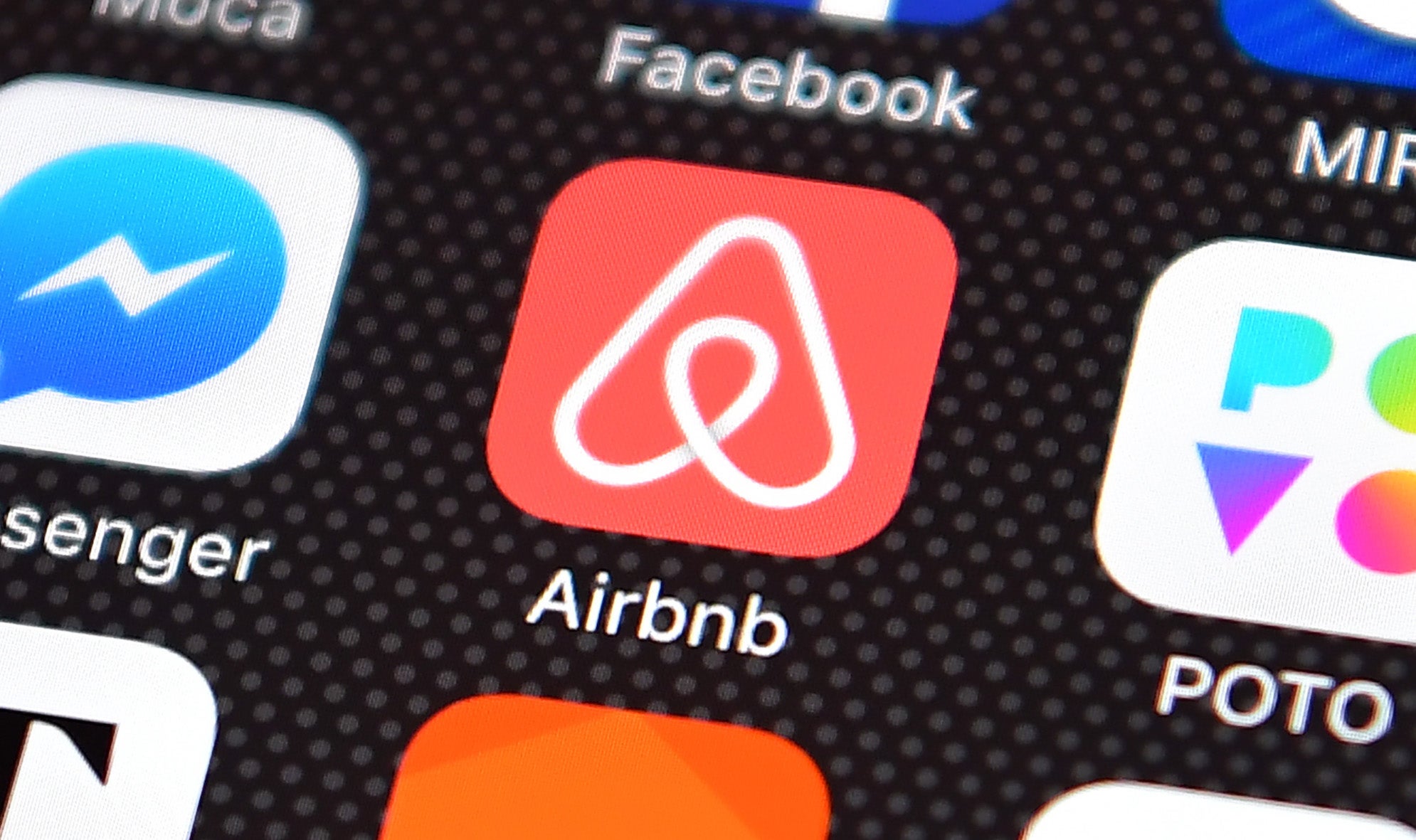The Independent's journalism is supported by our readers. When you purchase through links on our site, we may earn commission.
With fears of racial discrimination, Airbnb can't be trusted to self-regulate

Your support helps us to tell the story
From reproductive rights to climate change to Big Tech, The Independent is on the ground when the story is developing. Whether it's investigating the financials of Elon Musk's pro-Trump PAC or producing our latest documentary, 'The A Word', which shines a light on the American women fighting for reproductive rights, we know how important it is to parse out the facts from the messaging.
At such a critical moment in US history, we need reporters on the ground. Your donation allows us to keep sending journalists to speak to both sides of the story.
The Independent is trusted by Americans across the entire political spectrum. And unlike many other quality news outlets, we choose not to lock Americans out of our reporting and analysis with paywalls. We believe quality journalism should be available to everyone, paid for by those who can afford it.
Your support makes all the difference.There’s good news and bad news. On Monday, Airbnb asked its users to make a Commitment not to discriminate. On Tuesday, it moved to have the first race discrimination case brought against it kicked out of federal court based on an arbitration clause.
These two actions taken so close in time are together a prime example of why companies offering public accommodations through the sharing economy should not be permitted to self-regulate.
Even if these companies want to do the right thing, as Airbnb has demonstrated of late, there are business incentives not to. This begs the question whether we should leave our anti-discrimination laws in their hands.
The answer: probably not.
First, let us recall Monday. Airbnb sent an email to its users “asking [them] to agree to a Community Commitment beginning November 1, 2016.” Notably, the email stated that hosts “must commit to treat everyone —regardless of race, religion, national origin, ethnicity, disability, sex, gender identity, sexual orientation or age—with respect, and without judgment or bias.” A failure to do so, says Airbnb, will result in a person being prohibited access to the site until they agree. If a host violates the policy, Airbnb may suspend the host from the platform. That’s the good news.
This move was especially heartening after empirical evidence suggesting that Airbnb hosts discriminate against their guests based on race. Specifically, a heavily reported January 2016 study found that “[R]equests from guests with distinctively African-American names are roughly 16 percent less likely to be accepted than identical guests with distinctively White names.” Anecdotal reports found under the hashtag #AirBnBWhileBlack from African-American potential guests confirmed the study’s results. And some hosts openly admitted they do not accept blacks for what would be discriminatory reasons.
That’s where Gregory Selden came in.
On May 17, 2016, Selden filed a class action complaint alleging that Airbnb’s hosts were engaged in discriminatory acts he endured while trying to participate in the sharing economy. Selden claimed that in March 2015 he inquired about the availability of a listing in Philadelphia, Pennsylvania with a host, only referred to as “Paul.” The host later told Selden that the listing was not available. While still searching for an accommodation, Selden came across Paul’s listing again. Selden grew suspicious that he had been discriminated against and created two “imitation” Airbnb profiles one under the “Jessie” and another under the name “Todd.” Jesse had the same demographic information as Selden. On the same day that Selden was rejected, he claimed that the host accepted both imitation potential guests. Selden alerted Airbnb to the discriminatory treatment that he received when trying to reserve a unit on Airbnb’s website and that his communications went unanswered. That’s when he filed suit.
Fast forward to when Airbnb successfully blocked Selden’s lawsuit—the proposed class action was moved into individual arbitration, per a clause in Airbnb’s Terms of Service. As a result, Airbnb was guaranteed a quick, confidential finish to what could have been a long and potentially damaging legal fight for the company and its image.
By inserting individual arbitration clauses into a consumer contract, many companies get to circumvent the courts and bar people from joining together in class-action lawsuits, which is often the only vehicle citizens have to fight illegal or deceitful business practices. With this move, it is unlikely that its users will ever force Airbnb to change its policies through the courts. That’s the bad news.
This week in AirBnB-land is argument enough for why a regulatory model similar to that used to root out discriminating landlords in the fair housing arena should be employed now to enforce Title II of the Civil Rights Act of 1964. Title II prohibits discrimination in public accommodations such as inns and hotels, and chill discrimination among hosts in the sharing economy for the immediate future. Under Title II, the Attorney General of the United States has enforcement power that has been used in the past to root out discrimination in hotels as far back as 1964, immediately following the passage of the Act, in Heart of Atlanta Motel, Inc. v. United States.
Hopefully, the next Attorney General, whoever she or he will be, will consider using their powers in this new arena to deter this age-old discrimination. That may be the best news for us all.
Editor's note: Norrinda Brown Hayat is the Director of the Housing and Consumer Law Clinic at the University of the District of Columbia's David A. Clarke School of Law. She previously worked as a trial attorney in the US Department of Justice, Civil Rights Division, Housing and Civil Enforcement Section.